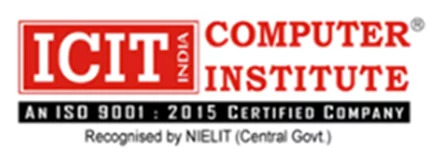#India Corporate Training Market
Explore tagged Tumblr posts
Text
India Corporate Training Market to Witness Robust Growth with a Projected CAGR of 14% During 2024-2028
Korea SMEs and Startups Agency (KOSME) has introduced the Korean Corporate Competency Training Program, a specialized initiative designed to equip Indian university graduates with the skills needed to work in Korean companies. This program addresses the increasing need for cross-cultural awareness and corporate expertise as Korean businesses expand globally, with particular emphasis on strengthening their presence in the Indian market.
Focus will be on enhancing experiential learning through technologies like AR/VR, the Metaverse, and microlearning concepts. Courses on data and business analytics, AI-ML, cybersecurity, and cloud infrastructure are anticipated to be in high demand.
Rising Demand for Skill-Based Training: The Indian corporate training market is experiencing a surge in demand for skill-based programs, especially in technology, management, and soft skills. Companies are aligning their training strategies with government initiatives like Skill India and National Skill Development Corporation (NSDC) goals. These programs aim to address workforce competency gaps and enhance productivity. From a company’s perspective, upskilling boosts employee retention and efficiency. The government encourages collaborations between corporations and training institutions under Public-Private Partnership (PPP) models to strengthen the labor force and drive economic growth.

Increased Emphasis on ESG Training: Environmental, Social, and Governance (ESG) training is becoming a priority for Indian businesses to meet compliance and sustainability goals. Companies focus on sensitizing employees to sustainability practices, workplace diversity, and corporate governance. With increasing mandates from SEBI (Securities and Exchange Board of India) on ESG disclosures for listed companies, training helps in embedding ESG principles into business operations. The government’s emphasis on green policies, such as the National Action Plan on Climate Change (NAPCC), aligns with corporate strategies, making ESG training essential for maintaining competitive and regulatory edge.
Blended Learning Models: Corporations in India are adopting hybrid training models that combine classroom and digital learning. This trend aligns with the government’s Digital India initiative to promote technology in education. Blended models allow companies to balance cost-efficiency with effective learning outcomes. From an operational perspective, this approach offers scalability, enabling nationwide training for dispersed teams. The government push for improved internet connectivity through BharatNet plays a significant role in facilitating the growth of online training, particularly in semi-urban and rural areas.
Focus on Leadership and Governance Training: Indian companies are emphasizing leadership development programs to build governance capabilities in senior management. This trend is driven by the Companies Act, 2013, which mandates robust corporate governance structures, including board effectiveness and director responsibilities. Training in governance practices is critical for compliance and strategic decision-making. The government initiatives, such as the Insolvency and Bankruptcy Code (IBC), emphasize the need for well-trained leadership in handling business restructuring and resolution processes, ensuring companies remain resilient in a dynamic economic environment.
The report titled “India Corporate Training Market Outlook to 2029- By Market Structure (In-House and Outsourced Trainings), By Training Type (Technical Skills, Soft Skills, Compliance, and Leadership Development), By Industry Verticals (Finance, IT, Manufacturing, Healthcare, and Retail), By Organization Size” by TraceData Research said that the technical sector dominates the market growth as technical trainings are generally given to employees at the start of their professional journey in a company. Due to the pandemic, business operations were shifted to work from home model therefore many employees were on their own due to which they felt the need for technical skills.
To Know More Details About the Sector, Please Follow the Link: -
India Corporate Training Market
Related Reports by Trace Data:
Indonesia Corporate Training Market Outlook to 2029
Malaysia Corporate Training Market Outlook to 2029
Contact Us: -
Mohit Kadian
+91-9266849840
#India Corporate Training Market#India Corporate Training Industry#India Corporate Training Sector#India Corporate Training Market Major Players#India Corporate Training Market Size
1 note
·
View note
Text
The Global Skills Race: How Emerging Economies are Redefining Corporate Training Market

The corporate training industry is a critical engine for organizational growth, empowering businesses to thrive in today's dynamic and competitive landscape. By equipping employees with the latest skills and knowledge, training programs enhance productivity, fuel innovation, and drive long-term success. This blog delves into the market size, growth trajectory, key trends, and regional variations, with a specific focus on emerging markets like India, China, Vietnam, and Australia. Utilizing real-time data and insights, we'll explore the evolving corporate training landscape and its impact on building future-proof workforces across the globe.
Global Market Boom: Investing in Human Capital
The global corporate training market is experiencing exponential growth. Market research estimates the market to be valued at a staggering USD 183.45 billion in 2023]. Looking ahead, projections anticipate the market to reach a phenomenal USD 420.28 billion by 2030, exhibiting a compelling Compound Annual Growth Rate (CAGR) of 11.48%. This impressive growth signifies the increasing global recognition of the value proposition of corporate training in fostering a skilled and adaptable workforce.
Regional Variations: A Diversified Landscape
While a definitive breakdown of global market revenue by region isn't readily available, regional market share estimations offer valuable insights:
North America: 38.2%. This dominance is attributed to established training companies and a strong focus on employee development.
Asia Pacific: 27.5%. With a growing workforce and increasing foreign investment, the Asia Pacific region is expected to experience the fastest growth, potentially surpassing North America in the coming years.
Europe: 22.1%. A mature market with a focus on compliance training and specialized skill development.
Rest of the World: 12.2%. This segment includes emerging markets like India, Vietnam, and Australia, which are experiencing significant growth due to rapid economic development and a growing need for skilled professionals.
Emerging Markets: A Focus on Skill Development
Let's explore the corporate training industry in some key emerging markets:
India: The Indian corporate training industry is estimated to be valued at approximately USD 10.9 billion in 2024. Projections anticipate the market to reach a staggering USD 57.02 billion by 2030, reflecting a CAGR of 27.41%. This growth is fueled by a young and ambitious population, government initiatives promoting skill development, and increasing disposable incomes.
China: The China corporate training market is expected to reach USD 54.2 billion by 2025. This impressive growth is driven by factors such as rapid urbanization, a growing middle class, and a government emphasis on innovation and technological advancement.
Vietnam: With a young and tech-savvy population, Vietnam corporate training market is experiencing significant growth. The market is expected to be driven by the need to develop skills in areas like digital marketing, software development, and foreign languages.
Australia: The Australia corporate training market is a mature and well-established sector. The market is expected to reach AUD 24.2 billion by 2027. A focus on compliance training, leadership development, and industry-specific skills is driving growth in this market.
Trends Shaping the Future
Several key trends are reshaping the global corporate training industry:
Microlearning: Bite-sized learning modules cater to busy professionals, allowing them to acquire new skills and knowledge during short bursts throughout the workday.
E-Learning Boom: E-learning platforms provide cost-effective and scalable training solutions, enabling employees to learn at their own pace and convenience.
AI Integration: Artificial intelligence is personalizing learning experiences, recommending relevant content, and providing real-time feedback.
Soft Skills Focus: Soft skills like communication, collaboration, and critical thinking are increasingly emphasized alongside technical skills.
Data-Driven Training: Organizations are leveraging data analytics to track progress, identify skill gaps, and measure the effectiveness of training programs.
Conclusion
The corporate training market plays a pivotal role in fostering a skilled and adaptable workforce, equipping individuals with the tools they need to thrive in the ever-evolving global economy. By understanding the global market size, regional variations, emerging markets, and key trends, businesses can make informed decisions about their training investments. As the market continues to expand, with a projected value of USD 420.28 billion by 2030, we can expect continued innovation in training methodologies. A growing emphasis will be placed on personalized learning experiences, the integration of advanced technologies like AI and virtual reality, and the development of effective strategies to measure the return on investment (ROI) of training programs.
#corporate training market#corporate training market revenue#corporate training market share#corporate training market top players#corporate training market size#corporate training industry#global corporate training market#corporate training industry in india#china corporate training market#australia corporate training market#vietnam corporate training
0 notes
Text
Corporate Training in India is one of the most respectful, meaningful and lucrative profession in recent times. Not only that there is an enormous amount of job satisfaction for trainers as there is a sense of giving back to society. So its a no brainer that more and more people who want to be Corporate Trainers in India.
#Corporate training services#Corporate trainer certification#Corporate training companies in India#entrepreneur#branding#marketing
0 notes
Text
Maximizing Employee Potential Through Corporate Training

Introduction
Companies need to put in the effort to maximise employee potential if they want to reap long-term success and be competitive in their market. Corporate training is one way to do this, as it helps employees gain new skills, remain up-to-date with industry trends, and ultimately contribute more effectively to the company.
In this blog article, we’ll discuss why corporate training is so important and how companies can maximise employee potential through training. We’ll cover topics such as creating tailored programs, leveraging technology, and measuring the impact of your efforts. Read on to learn more!

What is Corporate Training?
Corporate training is a process through which businesses provide employees with the skills and knowledge necessary to perform their jobs effectively. This type of training can be delivered in a variety of formats, including classroom-based instruction, online courses, and on-the-job training. Corporate training programs are typically designed to meet the specific needs of the organisation and its employees.
When done correctly, corporate training can help businesses achieve a number of objectives, such as improving employee productivity, reducing turnover, and increasing job satisfaction.
Additionally, corporate training can also help businesses keep up with changes in technology and industry trends. Ultimately, corporate training is an investment that can pay off in many ways for both businesses and employees.

The Benefits of Corporate Training
Corporate training can have a profound impact on an organisation, improving employee retention and engagement while also increasing productivity. When implemented correctly, corporate training can be a powerful tool for developing a skilled and motivated workforce.
There are many benefits of corporate training, including:
Improved Employee Retention: Corporate training can help reduce turnover by improving employee satisfaction and engagement.
Increased Productivity: Trained employees are more efficient and effective in their roles, leading to increased productivity for the organisation.
Improved Customer Service: Employees who receive quality training are better equipped to provide excellent customer service, resulting in happier customers and improved business performance.
Enhanced Employee Engagement: Training can help employees feel more invested in their work and improve their overall job satisfaction. This leads to increased engagement and motivation, which benefits the organisation as a whole.
Improved Organisational Performance: When employees are properly trained, it results in a more positive work environment and improved organisational performance.

The Different Types of Corporate Training Programs
Corporate training programs come in many different forms, but they all share the common goal of helping employees reach their full potential. The most common types of corporate training programs are:
1. On-the-job training: This type of training takes place within the company, and typically involves shadowing experienced employees or working with a mentor.
2. Off-the-job training: This type of training takes place outside of the company, and can include attending seminars, taking courses, or even earning a degree.
3. E-learning: E-learning is a growing trend in corporate training, and involves using computer-based resources to learn new skills or knowledge.
4. Blended learning: Blended learning combines elements of on-the-job and off-the-job training, as well as e-learning. It's a flexible approach that can be customised to meet the needs of each individual learner.
5. Management development programs: These programs are designed to help managers hone their leadership skills and improve their ability to manage teams effectively.

How to Implement a Corporate Training Program
When it comes to corporate training programs, there is no one-size-fits-all solution. The best way to implement a corporate training program depends on the needs of your organisation and your employees. However, there are some general tips that can help you get started:
1. Define your goals and objectives: What do you want to achieve with your corporate training program? What skills do you want your employees to develop? Having a clear idea of what you want to accomplish will make it easier to design an effective program.
2. Choose the right format: There are many different ways to deliver corporate training, including online courses, in-person workshops, and blended learning programs. Consider the learning preferences of your employees and the resources available to you when selecting a format.
3. Make it engaging: Corporate training can be dry and boring if it isn't well-designed. Be sure to include interactive elements and real-world examples to hold your employees' attention.
4. Assess results regularly: Don't wait until the end of the program to see how your employees have performed. Conduct regular assessments throughout the program so you can identify areas that need improvement and make necessary adjustments.

Effectiveness of Corporate Training
Corporate training is an important part of ensuring that employees have the skills they need to be successful in their roles. When done correctly, corporate training can lead to increased job satisfaction, improved performance, and decreased turnover.
Additionally, corporate training can help to build a positive company culture and improve communication between employees and management. Despite the many benefits of corporate training, however, it is important to ensure that the training is effective. There are a few key ways to do this:
1. Keep it relevant: Make sure that the content of the training program is relevant to the needs of your employees. If possible, allow them to participate in creating or selecting the topics that will be covered.
2. Make it engaging Employees are more likely to learn and retain information if they are actively engaged in the learning process. Find ways to make the material interesting and interactive, using games, simulations, and other hands-on activities.
3. Make it convenient: Employees are more likely to participate in training if it is convenient for them. Offer flexible scheduling options and provide materials in a format that is easy for them to access (e-learning, podcasts, etc.).
4. Make it rewarding: Recognize and reward employees for completing training programs. This will not only incentivize them to participate, but also show them that you value their development and commitment to professional growth

Different Types of Corporate Training Marketing
Corporate training can take many different forms, but all are designed to help employees reach their potential and contribute to the success of the company. The most common type of corporate training is sales training, which helps employees learn how to sell products or services.
Other types of corporate training include customer service training, leadership development, and financial management training. Each type of corporate training has its own benefits and drawbacks, so it's important to choose the right type of training for your company's needs.
Sales Training: Sales training is designed to help employees learn how to sell products or services. This type of corporate training can be beneficial for companies that want to increase their revenue. However, sales training can also be costly and time-consuming.
Customer Service Training: Customer service training is designed to help employees learn how to provide excellent customer service. This type of corporate training can be beneficial for companies that want to improve their customer satisfaction rates. However, customer service training can also be costly and time-consuming.
Leadership Development: Leadership development is designed to help employees learn how to be effective leaders. This type of corporate training can be beneficial for companies that want to improve their leadership skills. However, leadership development can also be costly and time-consuming.
Financial Management Training: Financial management training is designed to help employees learn how to manage finances effectively. This type of corporate training can be beneficial for companies that want to improve their financial management skills. However, financial management training can build your career.

Tips for Successful Training
Successful corporate training is essential for companies to keep their employees up to date on new policies and procedures, as well as to ensure that all staff members are working together with the same goals in mind. Here are some tips to ensure that corporate training is effective:
Start with a clear goal: Before beginning any training, it's important to have an idea of what the desired outcomes should be. This will help you create a plan of action and keep everyone focused on the task at hand.
Involve key stakeholders: Make sure that all relevant stakeholders are involved in the decision-making process when developing a training program; this will help create buy-in from everyone who needs to be involved in order for the program to be successful.
Start with a clear understanding of goals and objectives: Knowing what outcomes the organisation wants to achieve from its training program helps ensure that resources are used effectively and efficiently.
Choose an appropriate delivery method for the content: Training should be delivered in a way that works best for learners – this could mean using digital platforms, or delivering workshops and seminars in person – based on the subject matter and size of audience involved.
Monitor progress periodically during the program: including assessing participants’ understanding of concepts covered so far as well as their engagement levels with the material presented.
Conclusion
Corporate training is an essential tool for unlocking the potential of your workforce. It can help employees develop the skills and knowledge needed to succeed in their roles, as well as provide them with a sense of purpose and engagement. By taking the time to properly invest in corporate training you will ensure that your employees are equipped with the tools they need to excel at their jobs, making both them and your company more successful.
#corporate training#corporate training programs#corporate training centre#corporate training for employees#career counselling#corporate training in india#corporate training companies#employees development#employee potential#learning and development#employee skills#long term success#corporate training bangladesh#employee skills training#industry trends#competitive market#corporate training program
0 notes
Text
Accounting Outsourcing India by MAS LLP: Streamline Your Business Operations
In today’s competitive business landscape, companies are constantly seeking ways to optimize costs and enhance efficiency. Accounting outsourcing in India has emerged as a highly effective solution for businesses worldwide. MAS LLP, a trusted name in financial services, offers expert accounting outsourcing solutions tailored to meet the unique needs of businesses across industries.

Why Choose Accounting Outsourcing India? Outsourcing accounting services to India has gained immense popularity due to several key advantages:
Cost Efficiency India offers high-quality accounting services at a fraction of the cost compared to Western countries. Businesses can save significantly on overheads like salaries, training, and infrastructure by outsourcing to skilled professionals in India.
Access to Skilled Professionals India is home to a vast pool of certified accountants and financial experts. By partnering with an experienced firm like MAS LLP, you gain access to knowledgeable professionals who ensure accuracy and compliance.
Focus on Core Business Activities Outsourcing accounting tasks allows businesses to focus on their core operations, such as sales, marketing, and product development, while leaving the financial complexities to experts.
Scalability Whether you're a startup or a large enterprise, accounting outsourcing India offers flexibility to scale services as your business grows.
Services Offered by MAS LLP As a leading provider of accounting outsourcing India, MAS LLP offers a comprehensive range of services, including:
Bookkeeping and Accounting Accurate bookkeeping is the foundation of effective financial management. MAS LLP ensures your records are maintained meticulously, allowing you to make informed decisions.
Payroll Management Outsource your payroll processing to MAS LLP for timely and error-free salary disbursements, tax calculations, and compliance with labor laws.
Taxation Services From GST filings to corporate tax returns, MAS LLP provides end-to-end taxation support to ensure compliance with Indian tax laws.
Financial Reporting Receive detailed financial statements and reports that provide a clear picture of your business's financial health, helping you strategize effectively.
Compliance and Regulatory Support MAS LLP ensures your business adheres to all regulatory requirements, minimizing the risk of penalties and legal complications.
Why MAS LLP Stands Out MAS LLP is not just another outsourcing firm—it’s a partner committed to your success. Here’s why they’re the preferred choice for accounting outsourcing India:
Client-Centric Approach: MAS LLP focuses on understanding your business needs and providing personalized solutions. Timely Delivery: They prioritize deadlines, ensuring your financial tasks are completed on time. Proven Track Record: MAS LLP has a long list of satisfied clients who have experienced significant growth through their services.
Conclusion Accounting outsourcing India is a smart choice for businesses looking to reduce costs, improve efficiency, and achieve financial accuracy. With MAS LLP as your trusted partner, you can rest assured that your accounting needs are in expert hands.
Take the next step toward streamlining your business operations—partner with MAS LLP today for reliable and professional accounting outsourcing India!
#accounting & bookkeeping services in india#audit#businessregistration#chartered accountant#foreign companies registration in india#income tax#auditor#taxation#ap management services
6 notes
·
View notes
Text
FORE School of Management: A Premier Institution for Future Business Leaders
When it comes to pursuing a management degree in India, FORE School of Management stands out as a top choice for aspiring business leaders. Established in 1981, the institute has consistently been ranked among the best business schools in the country. Located in the heart of South Delhi, FORE (Foundation for Organizational Research and Education) offers a dynamic learning environment that blends academic rigor with practical experience. This blog delves into why FORE School of Management should be on your radar if you’re looking to excel in the world of business.

Academic Excellence at FORE School of Management
One of the primary reasons behind the success of FORE School of Management is its commitment to academic excellence. The institute offers a range of programs including:
Post Graduate Diploma in Management (PGDM): FORE’s flagship program, recognized for its cutting-edge curriculum that aligns with industry trends.
PGDM in International Business: A specialized program focusing on the global aspects of business management.
Executive PGDM: Tailored for working professionals, this course offers flexible learning without compromising on content.
PGDM in Big Data Analytics: Preparing future leaders to handle complex data-driven decision-making.
Each of these programs is designed to equip students with both theoretical knowledge and practical skills necessary for navigating today’s business challenges.
Industry-Centric Curriculum
FORE School of Management understands that the corporate world is constantly evolving. To ensure that students are prepared for these changes, the curriculum is regularly updated in consultation with industry experts. The school’s focus on experiential learning through case studies, live projects, internships, and workshops sets it apart from other business schools. This approach bridges the gap between classroom learning and real-world business applications, ensuring that graduates are industry-ready from day one.
World-Class Faculty
A business school is only as good as its faculty, and at FORE School of Management, students are mentored by some of the best minds in the academic and business worlds. The faculty comprises experienced academicians, researchers, and industry professionals who bring a wealth of knowledge and real-world insights into the classroom. Their expertise spans various disciplines, including marketing, finance, operations, human resources, and data analytics, among others.
State-of-the-Art Infrastructure
FORE School of Management provides students with a modern, tech-enabled campus that fosters learning and innovation. The school boasts:
Smart Classrooms: Equipped with the latest technology to enhance interactive learning.
Library and Information Centre: A vast repository of books, journals, and digital resources for research and study.
Computer Labs: Cutting-edge infrastructure for data analytics and other specialized software training.
Hostel Facilities: Comfortable accommodation for outstation students, ensuring a conducive living environment.
The campus also offers various recreational and fitness facilities, making it a holistic space for personal and professional development.
Strong Industry Connections and Placement Records
One of the standout features of FORE School of Management is its robust placement record. The institute has consistently attracted top-tier companies across sectors for campus recruitment. Students have landed roles in organizations like Deloitte, KPMG, EY, PwC, Nestlé, HCL, and many more.
The school’s Corporate Interaction Division (CID) plays a crucial role in fostering these relationships by organizing seminars, guest lectures, and industry visits. These initiatives provide students with the opportunity to network with industry leaders and gain valuable insights into current business practices.
Focus on Entrepreneurship and Innovation
In today’s fast-paced business world, the ability to innovate is crucial for success. FORE School of Management encourages entrepreneurial thinking and supports budding entrepreneurs through its various initiatives. The institute has an Entrepreneurship Development Cell (EDC) that provides mentorship, resources, and opportunities for students to turn their business ideas into reality.
Global Exposure
In a globalized business environment, having international exposure can set you apart. FORE School of Management offers various exchange programs and partnerships with international universities, providing students with a global perspective on business management. These programs help students gain insights into different markets, cultures, and business practices, making them well-rounded professionals ready to take on global challenges.
Conclusion
Choosing the right business school is a critical decision, and FORE School of Management offers everything you need to succeed in today’s competitive business landscape. With its strong focus on academic excellence, industry relevance, innovation, and global exposure, FORE continues to be a leader in management education. If you’re looking to build a successful career in business, FORE School of Management is undoubtedly an institution worth considering.
#fore school of management#education#higher education#colleges#education news#admissions#universities#FORE School#mba#news#students#educationnews
2 notes
·
View notes
Text


January 22nd 1777 saw the birth, in Montrose, of Joseph Hume.
The son of James Hume, shipmaster, and Mary Allan who ran a crockery stall at the local markets, there is not a lot of detail on Hume's early years other than he lost his father at a young age, he was apprenticed to a local surgeon and sent for medical training at the University of Edinburgh.
Joseph Hume became an assistant surgeon in the East India Company in 1797. His proficiency for language enabled him to become very wealthy during his service in India. After the end of the Mahratta War he moved to England and was influenced by the political philosophy of James Mill and Jeremy Bentham.
He served as a Member of Parliament for the Weymouth constituency in 1812 and then for a variety of constituencies in Scotland, England and Ireland from 1818-55. At the start of his political career he held Tory principles but became more and more liberal and radical. He was a proponent of Catholic Emancipation, the extension of voting rights, the promotion of savings banks and free trade. He also actively campaigned for the abolition of corporal punishment in the armed forces, press-ganging in the Navy and custodial sentences for those in debt.
He died on 20 February 1855 at Burnley Hall in Norfolk.
The pic is a portrait of Joseph Hume, by J P Heally.
There is an extended biography on Joseph Hume here https://www.historyofparliamentonline.org/…/hume-joseph-177…
11 notes
·
View notes
Text
Transforming Futures: The Impact of Anudip Foundation in Skill Development
In a world increasingly driven by technology and innovation, the need for skilled professionals has never been more urgent. In India, millions of young people face barriers to employment due to a lack of relevant skills and training. This is where the Anudip Foundation steps in, dedicated to bridging this gap and empowering individuals through skill development and social welfare initiatives.
A Mission Rooted in Empowerment
Founded in 2007, Anudip Foundation is committed to uplifting marginalized communities across India. The organization’s mission is clear: to provide quality skill development programs that enable individuals to secure sustainable livelihoods. By focusing on education and empowerment, Anudip not only equips individuals with technical skills but also instills confidence and fosters a sense of self-worth.
Diverse Skill Development Programs
Anudip Foundation adopts a multifaceted approach to skill development, tailoring its programs to meet the diverse needs of its participants. Here are some key areas of focus:
1. Vocational Training
Anudip offers vocational training in various sectors, including information technology, hospitality, healthcare, and retail. These programs are designed to provide participants with hands-on experience and the skills needed to thrive in competitive job markets.
2. Digital Skills Training
In today’s digital era, proficiency in technology is crucial. Anudip emphasizes digital literacy, ensuring that participants are equipped to navigate the digital landscape effectively. This training opens up new avenues for employment and enables individuals to enhance their productivity.
3. Entrepreneurship Support
Recognizing the potential of self-employment, Anudip offers entrepreneurship development programs. Through workshops and mentorship, participants learn how to turn their business ideas into reality, fostering a spirit of innovation and self-reliance.
4. Community-Centric Approach
Anudip Foundation believes that true change happens at the community level. Their programs actively engage local stakeholders, ensuring that training is relevant and tailored to the needs of each community. This collaborative approach not only enhances the effectiveness of the training but also builds a network of support for participants.
Inspiring Success Stories
The impact of Anudip Foundation is best illustrated through the success stories of its participants. Many individuals who once faced limited opportunities have transformed their lives through skill development. For example, young women from rural areas have gained the confidence to enter the workforce, achieving financial independence and becoming role models within their communities.
Strategic Partnerships
Anudip Foundation’s effectiveness is amplified through collaborations with government bodies, corporate partners, and other NGOs. These partnerships help in aligning the training programs with industry needs, ensuring that participants are well-prepared for employment. By leveraging resources and expertise from diverse stakeholders, Anudip maximizes its impact.
The Road Ahead
As Anudip Foundation continues its journey, the importance of skill development remains paramount. The organization is committed to evolving its programs to meet the changing demands of the job market. By staying ahead of industry trends, Anudip aims to equip participants with the skills necessary for future success.
Get Involved
If you share Anudip Foundation’s vision of empowerment and social change, there are numerous ways to get involved. From volunteering your time to making financial contributions, every effort helps support their mission of transforming lives through skill development.
Conclusion
The Anudip Foundation exemplifies the profound impact of skill development on individuals and communities. By providing education, training, and support, they are not only creating job-ready candidates but also fostering empowered citizens who can contribute positively to society. With organizations like Anudip leading the charge, the future holds promise for many, as they strive to create a world where everyone has the opportunity to thrive.
2 notes
·
View notes
Text
How Jignesh Shah Leads: A Pioneer in Today's Financial Markets

Mr. Jignesh Shah, Founder, Chairman Emeritus, and Chief Mentor of 63 Moons Technologies Limited, led the company innovatively, leaving a lasting mark on the Indian financial market infrastructure. His ideas went beyond how markets usually work.
As a result, he set up world-class trading systems in India and electronic silk and spice routes that crossed countries. This blog talks about Mr. Jignesh Shah's way of leading by looking at his creative ideas, the successful Public-Private Partnership (PPP) plan, and his dedication to being a good citizen.
Leadership with a Vision
Jignesh Shah's leadership style is based on his ability to see the big picture. Mr. Shah saw a future where India could be one of the world's financial powerhouses. This was at a time when the Indian financial market needed help with global integration and building up its own capabilities. Because he was smart, he started 63 Moons Technologies Limited, a business that has been very important in modernizing India's financial markets. His creative leadership was built on his ability to see beyond the obvious and guess what would happen in the future.
One of the most important things he did as a leader was starting the Multi Commodity Exchange of India (MCX) in 2003. MCX, an earlier sister company of NSEL, changed the way goods were traded in India because it was the country's first commodity exchange . The fact that the exchange grew to become the world's sixth-biggest commodity futures exchange by 2009 shows how forward-thinking Mr. Shah is.
Innovative Leader in Today's Financial Markets
Because Mr. Shah was always looking for new ways to do things, people called him the "Innovator of Modern Financial Markets." One of the most impressive things about his leadership is that he came up with a successful Public-Private Partnership (PPP) plan for building world-class financial institutions.
By encouraging the government and businesses to work together, Jignesh Shah made it easier for modern financial markets that focus on intellectual property to grow. Not only have these markets changed the way exchange trade works in India, but they have also done so in other developing economies in Asia and Africa.
Setting up electronic silk and spice lines as a leader shows how committed he is to integrating the world. These routes have made it easier to trade across countries, from Africa to the Middle East to South-East Asia. 63 Moons Technologies is the only Indian company to have been able to do this. This global view is an important part of Mr. Shah's leadership style and shows that he can think beyond geographical limits.
Promise to Be Socially Responsible
Beyond his work in the financial markets, Mr. Shah is a strong leader who cares deeply about Corporate Social Responsibility (CSR). He really wants to use markets to make social change happen, and he has started a number of programs to help poor areas get more power. "Pragati" with Rotary International and "Gramin Suvidha Kendra" with India Post are two of the most important of these. These programs are meant to help underprivileged groups get education and training, which shows that Mr. Shah believes that markets have the power to change things.
Rotary International named him a "Global Social Entrepreneur," and he was on Forbes' list of the richest Indians until 2010. These honors show that he is focused on both business success and making a positive difference in the world. By doing these things, Mr. Shah has shown that real leadership means doing more than just running a business well. It also means making a difference in the world.
A Boss and Guide
Mr. Shah's leadership is shaped by his job as a mentor and guide at 63 Moons Technologies Limited, where he is the Chief Mentor. He has made the company's culture one of innovation and excellence, which has inspired the next generation of leaders to carry out his mission. His guidance has been very important in creating a lively and forward-thinking work culture, ensuring that the company's history of innovation lives on.
In conclusion
Mr. Jignesh Shah is a leader who thinks big, comes up with new ideas, and cares deeply about doing the right thing for society. His ability to see trends before they happen, build solid public-private relationships, and push for global integration has completely changed the Indian financial market. His many awards and recognition as an innovator show how much of an effect he has had on the industry. In addition, his commitment to CSR projects shows that he believes markets have the power to make the world a better place. As a teacher and mentor, Mr. Shah has made sure that his legacy of innovation and success will continue to inspire people in the years to come.
source:- https://upuge.com/read-blog/33844_how-jignesh-shah-leads-a-pioneer-in-today-039-s-financial-markets.html
3 notes
·
View notes
Text
The Best Hotel Marketing Agency for Maximizing Your Hotel's Success
Introduction: In today’s competitive hospitality industry, effective marketing is essential for any hotel aiming to maximize occupancy and revenue. With the myriad of challenges that hotels face, from maintaining a strong online presence to managing bookings across multiple platforms, the need for a specialized hotel marketing agency has never been greater. Choosing the right partner can make a significant difference in achieving your hotel's goals, and this is where Grow Vista Hospitality stands out.
Why Your Hotel Needs a Marketing Agency: Marketing a hotel is a complex task that involves more than just advertising rooms. Hotels need to manage their online presence, engage with potential guests on social media, optimize their listings on various OTAs, and ensure they are visible in search engine results. A professional hotel marketing agency can handle these tasks efficiently, allowing hotel owners to focus on delivering exceptional guest experiences.
Services Offered by Top Hotel Marketing Agencies:
Search Engine Optimization (SEO): Ensures your hotel website ranks higher in search engine results, driving organic traffic and bookings.
Social Media Management: Enhances your brand’s narrative on platforms like Instagram and Facebook, engaging potential guests with compelling content.
OTA Management: Manages your listings on OTAs, optimizing pricing and content to increase visibility and bookings.
Online Reputation Management: Monitors and responds to reviews across major platforms, enhancing your hotel’s online reputation.
Graphic and Video Content: Creates engaging visuals and videos that showcase your hotel’s unique features.
What Makes Grow Vista Hospitality the Best Hotel Marketing Agency: Grow Vista Hospitality goes beyond the standard offerings of most hotel marketing agencies. Here’s what sets them apart:
Comprehensive Service Portfolio: Grow Vista provides a 360-degree marketing and business development package that includes:
Search Engine Optimization (SEO): Achieve higher rankings in search engine results to drive organic traffic and bookings.
Social Media Management: Enhance your social media presence with strategic content and consistent engagement.
OTA Management: Unlock the potential of 15+ OTAs and 200+ affiliate partners with seamless listing and dynamic pricing strategies.
Online Reputation Management: Monitor and respond to reviews to maintain a positive online reputation.
Graphic and Video Content: Create captivating visual content to showcase your hotel's unique features.
Google My Business Management: Optimize your Google My Business listing for better visibility and engagement.
Front Desk Nurturing: Train and motivate your staff to deliver exceptional guest experiences.
Paid Advertising Campaigns: Execute targeted Google Ads and other paid campaigns to drive immediate results.
Channel Manager: Seamlessly manage inventory and rates across multiple OTAs.
Virtual Front Desk: Manage bookings and guest interactions efficiently with Grow Vista’s virtual front desk services.
Unique Offline Sales Support: Grow Vista is the only company offering dedicated offline sales support. This includes:
PAN-India Presence: A personalized sales team that reaches every corner of the country.
Tying Up Opportunities: Connecting with companies for corporate group trips and collaborating with event planners.
Centralized Excellence: A sales team headquartered in Delhi NCR, specializing in bulk bookings.
Proactive Outreach: Making over 200 personalized calls every day to explore opportunities.
Future Bookings: Proposals for future bookings to help hotels anticipate and plan for success.
Proven Success Stories: Grow Vista’s clients have experienced significant growth in bookings and revenue, thanks to their strategic marketing approach and commitment to excellence.
Client-Centric Approach: With a focus on building lasting relationships, Grow Vista ensures personalized attention and tailored solutions for each hotel they work with.
How to Choose the Right Hotel Marketing Agency: When selecting a hotel marketing agency, consider the following factors:
Experience and Expertise: Look for agencies with a proven track record in the hospitality industry.
Range of Services: Ensure the agency offers a comprehensive range of services that meet your hotel's needs.
Client Testimonials: Check reviews and testimonials from other hotel owners to gauge the agency���s effectiveness.
Customization: The agency should provide tailored solutions rather than a one-size-fits-all approach.
Performance Metrics: Ask about how the agency measures success and their reporting processes.
Conclusion: Partnering with the right hotel marketing agency can significantly impact your hotel's success. Grow Vista Hospitality, with its unique offerings and client-centric approach, stands out as the best choice for hotels looking to maximize their marketing efforts and achieve sustained growth. Visit Grow Vista Hospitality's website to learn more and start your journey towards success.
2 notes
·
View notes
Text
Outsource Bookkeeping Services to India: A Smart Business Move

In today’s competitive business environment, companies are constantly looking for ways to streamline operations and reduce costs. One effective strategy is to outsource bookkeeping services to India. This approach not only provides access to skilled professionals but also offers significant cost savings. Let's explore why outsourcing bookkeeping services to India can be a game-changer for your business.
Why Outsource Bookkeeping Services?
1. Cost-Effectiveness
Delegating your bookkeeping tasks to an external provider can result in significant financial savings. By choosing to outsource bookkeeping services to India, businesses can reduce overhead expenses associated with hiring in-house staff, such as salaries, benefits, and training costs. Indian firms offer competitive pricing due to lower labor costs, providing high-quality services at a fraction of the cost.
2. Access to Expertise
India is known for its vast pool of highly skilled and qualified professionals. When you outsource bookkeeping services, you gain access to experts who are proficient in international accounting standards and practices. These professionals are equipped with the latest tools and technologies to ensure accurate and efficient bookkeeping.
3. Focus on Core Business Activities
By outsourcing bookkeeping services, companies can focus more on their core business activities. This allows management and staff to dedicate their time and resources to areas that directly impact growth and profitability, such as sales, marketing, and product development.
Benefits of Outsourcing Bookkeeping Services in India
1. High-Quality Services
Indian bookkeeping firms are known for their commitment to quality. They employ stringent quality control measures and adhere to international accounting standards. This ensures that the financial records are accurate, reliable, and compliant with regulatory requirements.
2. Scalability
Outsourcing bookkeeping services in India offers flexibility and scalability. Whether you are a small business or a large corporation, Indian service providers can scale their services to meet your specific needs. This flexibility is particularly beneficial during periods of growth or seasonal fluctuations in business activity.
3. Time Zone Advantage
The time zone difference between India and Western countries can be leveraged to your advantage. By outsourcing bookkeeping services to India, you can benefit from round-the-clock operations. Work can be completed overnight, providing you with updated financial information by the start of your business day.
How to Choose the Right Bookkeeping Service Provider
1. Experience and Expertise
When outsourcing bookkeeping services, it’s crucial to choose a provider with extensive experience and expertise in the field. Seek out companies that have a history of success and favorable reviews from their clients. Ensure they have experience in your specific industry and are familiar with relevant regulations.
2. Technology and Security
Ensure the service provider uses the latest accounting software and technologies. Data security is paramount, so choose a provider that implements robust security measures to protect your financial information from unauthorized access and cyber threats.
3. Transparent Pricing
Opt for a service provider with a transparent pricing model. Avoid firms with hidden fees and unclear contracts. A clear understanding of the costs involved will help you make an informed decision and avoid any unexpected expenses.
4. Communication and Support
Effective communication is essential when outsourcing bookkeeping services. Choose a provider that offers reliable customer support and maintains clear and consistent communication channels. This guarantees that any problems or questions will be handled quickly and efficiently.
Conclusion
Outsourcing bookkeeping services to India is a strategic decision that can offer numerous benefits, including cost savings, access to expertise, and improved focus on core business activities. By carefully selecting the right service provider, businesses can enjoy high-quality, scalable, and secure bookkeeping services. Embrace this opportunity to enhance your business efficiency and drive growth.
In summary, outsourcing bookkeeping services to India is not just a cost-saving measure; it is a smart business strategy that can lead to improved operational efficiency and long-term success.
#Outsource bookkeeping services to India#outsourcing bookkeeping services in India#outsource bookkeeping services#outsourcing bookkeeping services#offshore bookkeeping services#CPA outsourcing services#outsourced accounting firms#finance#accounting#bookkeeping
2 notes
·
View notes
Text
Skilling Up for Success: A Look at India's Booming $23 Billion Corporate Education Market

The winds of change are sweeping through the corporate landscape, and India is at the forefront of this transformation. As the Indian economy surges, the demand for a skilled and adaptable workforce is echoing across industries. This is where the corporate education market steps in, serving as a critical catalyst for empowering employees and propelling business growth.
What is the Corporate Education Market?
The corporate education market encompasses all educational activities undertaken by companies to enhance their employees' skillsets and knowledge base. It's a comprehensive ecosystem that goes beyond traditional training programs. Here's what it entails:
Formal Training Programs: Structured learning initiatives covering technical skills (software development, data analysis) and soft skills (communication, leadership).
Informal Learning Initiatives: On-the-job mentoring, knowledge-sharing sessions, and collaborative learning opportunities.
Development Programs: Career development programs, leadership training, and executive coaching to prepare employees for future roles.
Factors Fueling Growth
India's corporate training market is experiencing exponential growth, driven by several key factors:
Economic Expansion: The Indian economy is projected to become the world's third-largest by 2027. This economic boom necessitates a skilled workforce across diverse sectors, from manufacturing to technology.
Shifting Demographics: India boasts a young population with a high digital literacy rate. However, this demographic dividend requires continual skill development to remain competitive in the global job market.
Government Initiatives: The Indian government is actively promoting skill development through initiatives like the Skill India Mission, further stimulating the market.
Market Size and Scope
The market is a multi-billion dollar industry, brimming with potential. Here's a glimpse into its size and projected growth:
Estimated Market Value: While precise figures may vary, the market is estimated to be well over USD 10 billion.
Projected Growth: Experts says that the market is going to reach a staggering USD 23.8 billion by 2027.
Harnessing Market Insights
Making informed decisions about corporate education investments is crucial for any business. This is where corporate education market research reports come into play. These reports offer valuable insights, including:
Market Segmentation: Understanding how the market is segmented by training type (soft skills vs. technical skills), delivery method (e-learning vs. instructor-led), and industry can help tailor programs to specific needs.
Key Players: Identifying leading training providers and edtech companies empowers businesses to choose the best partners for their training initiatives.
Regional Variations: For businesses operating across India, reports with regional breakdowns can prove invaluable.
Market Share and Top Players
The Indian corporate education market is undergoing a transformation, with new players emerging alongside established institutions. Here's a breakdown of the current market landscape:
Traditional Players: Established training institutions like NIIT, Aptech, and Talentedge hold a significant market share, offering a vast array of training programs.
Emerging Players: Edtech companies like UpGrad, Great Learning, and Simplilearn are rapidly gaining traction. These companies leverage technology to deliver flexible, scalable, and engaging learning solutions.
International Training Providers: Several international training providers have established a presence in India, offering globally recognized certifications and programs.
Top Players to Watch
The Indian corporate education market is a dynamic space with a constantly evolving list of key players. Here are some prominent names to keep an eye on:
Established training providers: NIIT, Aptech, Talentedge
Edtech companies: UpGrad, Great Learning, Simplilearn
International training providers: KPMG Learning Solutions, Harvard Business Publishing Corporate Learning
Market Insights and Future Trends
Reputable market research firms also analyze emerging trends within the corporate education market, such as:
Microlearning and Gamification: Shorter, bite-sized learning modules and gamified learning experiences are gaining popularity due to their effectiveness and ability to enhance engagement.
Industry-Specific Training Demands: The rise of automation and artificial intelligence necessitates industry-specific training programs to equip employees with the skills needed to thrive in a changing workplace.
Technology's Imprint on Learning Delivery: The integration of technologies like virtual reality (VR) and augmented reality (AR) into training programs is transforming learning experiences and enhancing knowledge retention.
Investing in the Future

The market offers a treasure trove of solutions for businesses to empower their workforce and achieve strategic goals. By leveraging the insights gleaned from market research reports, identifying the right training partners, and embracing innovative learning approaches, businesses can unlock the immense potential of corporate education:
Building a Future-Ready Workforce: Equipping employees with the latest skills and knowledge prepares them to adapt to a rapidly evolving business environment, fostering innovation and agility.
Boosting Innovation and Productivity: A skilled workforce is an innovative workforce. By investing in upskilling and reskilling initiatives, businesses can unlock new ideas, streamline processes, and drive overall productivity.
Enhancing Employee Engagement and Retention: Employees who feel valued and invested in are more engaged and less likely to leave. Corporate education demonstrates a company's commitment to its workforce, leading to higher employee satisfaction and reduced turnover rates.
Achieving Strategic Objectives: Effective training programs ensure employees possess the skills necessary to achieve the organization's strategic goals. Aligning employee development with business objectives fosters a culture of performance and goal achievement.
Conclusion
The corporate training market presents a compelling opportunity for businesses in India and globally to invest in their most valuable asset: their people. By staying informed about market trends, embracing innovative technologies, and fostering a collaborative approach with training providers, businesses can cultivate a culture of continuous learning within their organizations. As Herbert Spencer aptly stated, "The highest result of education is tolerance." A well-educated workforce fosters not only tolerance but also innovation, adaptability, and a competitive edge – all essential ingredients for success in today's dynamic business landscape.
#corporate education market#corporate training market in india#corporate training market size in india#corporate education market research reports#corporate training market share#corporate training market top players#corporate education market reports
0 notes
Text

How Technology Is Impacting The Mumbai Real Estate Market
Properties in Mumbai, from small residential or retail spaces to large industrial or commercial business complexes, offer a wide varieties and constantly launching new projects. Technology is playing a significant role in both the residential and commercial sectors of Mumbai. Many developers are introducing smart home technologies into their new projects, allowing residents to enhance their lifestyles and fulfill their expectations. Here are the major types of technologies used in Mumbai's real estate industry:

Reliable Power & Internet Services
With a population of around 21 million in 2024, Mumbai faces a high demand for electricity, internet, and other services. Developers in Mumbai have introduced partnerships with private sectors like Reliance Electricity, Tata Power, Airtel Internet, and Jio Fiber to meet these demands. This reliable supply of energy and services ensures residential needs are met and allows Corporates & Industries to function at their full potential.

Go Green Technology (Reduce, Reuse & Recycle)
Over the past two decades, Mumbai has become India's most visited city and a growing population hub. This rapid growth has put a strain on resources like water and green spaces. To address this, many Mumbai projects are incorporating green features. These include the development of artificial mangroves, large-scale gardens, and lakes to preserve nature and provide a fresh environment for residents. Additionally, property developers are introducing rainwater harvesting, Water filtration plants and garbage restoration services to their communities, promoting sustainability through reduction, reuse, and recycling.

Connectivity & Transportation Infrastructures
Mumbai is known for its fast-paced lifestyle, and large-scale property development is a constant feature. To improve connectivity, new infrastructure projects like the Worli Sea Link and Atal Setu Bridge connect major parts of the city to suburbs and prime locations. Additionally, Mumbai's new metro lines, mono trains and the prime railway network provide greater comfort and convenience for daily commuters. Modernization of the railways with new trains reduces congestion and offers safer journeys.

Modern Engineering & Luxurious Architecture
High-volume investors demand luxury and spacious living environments. Modern designs present a challenge ie. building architectural marvels in fast-growing areas with limited land. Technologies like heavy mobile cranes, temporary concrete plants and high-speed elevators facilitate the construction of modern real estate. In the luxury segment, glass-finished projects dominate central Mumbai areas like Parel-Worli to SoBo areas Dadar-Juhu. These buildings, constructed with modern glass manufacturing technology, add a glow to the city skyline. This lightweight and durable material is low-maintenance and withstands various weather conditions. Many engineering marvels include rooftop amenities like infinity pools, helipads, and vertical parking systems, catering to the luxurious needs of residents.
here's a Conclusion Technology giving boosts to mumbai's real estate market, by growing investors attentions towards good services, modern amenities, fast transportation & Smooth Connectivity. Providing Comfort & safety to Residents & sustainablity to limited Resources.
#real estate technology trends#mumbaiproperties#mumbairealestate#mumbai#dreamhome#propertyfinder#luxuryliving#mumbai infrastructure#tech used in architecture#technoloy in modern construction#sunblonde realtors#sunblonde realty#realestate
2 notes
·
View notes
Text
Unlocking Opportunities: Exploring Top 10 Digital Marketing Courses in Bandra, Mumbai
Are you looking for digital marketing courses in Bandra? Is it hard for you to choose the best one from the plethora of digital marketing institutes in Bandra? If so, you've landed in the perfect place.
With the ever-evolving digital landscape, mastering the art of online marketing has become the prime importance. Let's explore the top 10 digital marketing courses in this buzzing city to help you make an informed choice.
Top 10 Digital Marketing Courses in Bandra:

AADME is Asia’s 1st AI-enabled and Lifetime Mentorship digital marketing course in Bandra. They provide a dynamic learning platform for digital marketing classes in Mumbai with an affordable fee structure.
It is the best institute for digital marketing courses in Mumbai. Recently, it was awarded the Most Trusted Digital Marketing Learning Platform in 2023.
Aadme has trained 50k+ learners. They help students, working professionals, housewives, or agency owners who want to scale their businesses.
Course highlights
Guaranteed Internship: Assurance of practical experience through a hands-on internship at the end of the course
100% Job Assistance: Commitment to supporting graduates in securing employment opportunities.
Work Experience Letter: Upon completion of internship you will be granted a work experience letter.
100+ Tools Training: You will learn more than 100 plus automation tools increasing productivity.
7+ International Certifications: Attainment of globally recognized certifications for professional credibility.
Build Your Agency in 90 Days: Empower individuals to establish their digital marketing agencies within a three-month timeframe.
Lifetime Mentorship: Continuous guidance and support from experienced mentors throughout one's career.
Nations’ Best Trainer: Learning from a recognized and esteemed expert Alok Badatia
Personalized Training: Tailoring education to individual needs for a customized learning experience.
Easy EMI Options are Available: Providing flexibility with convenient and manageable EMI payment options.

2. IIDE – the digital school: Known for its industry-aligned syllabus and experienced faculty, IIDE stands out for its focus on practical learning, ensuring students are job-ready.

3. DMTI is another well-known digital marketing course in Bandra. DMTI SOFTPRO was established in 2009. They provide a range of courses, including both online and classroom training. They have trained more than 29,729+ students in digital marketing.

4. upGrad is an online higher education platform providing rigorous industry-relevant programs designed and delivered in collaboration with world-class faculty and industry. Merging the latest technology, pedagogy, and services, upGrad is creating an immersive learning experience – anytime and anywhere.

5. Compufield is also one of the best digital marketing training institutes in Mumbai. It offers customized learning solutions to students, working professionals, and entrepreneurs. The Digital Marketing Training program is designed keeping in mind the latest industry trends and techniques.

6. ICIT Computer Institute is one of the leading software training companies in India, offering comprehensive IT courses and cutting-edge training programs to IT aspirants [students & individuals], working professionals, corporates, institutions and government entities.

7. EduPristine is one of India’s leading training providers in Analytics, Accounting, Finance, Healthcare, and Marketing. Founded in 2008, EduPristine has a strong online platform and network of classrooms across India and caters to self-paced learning and online learning, in addition to classroom learning.

8. IIM Skills is another institute providing digital marketing courses in Bandra that provides online courses in different digital domains.
They provided real-time projects to ensure that they became well-trained for the digital industry. The institute offers a comprehensive course in digital marketing

9. Digital Vidya- The Digital Marketing Online Course at Digital Vidya offers a valuable learning experience through its hands-on assignments. These assignments are divided into module and case study tasks, which make the course more practical and engaging.
10. IDCM is India’s top-ranked vocational Training Institute, skilling 2 Lakh+ students annually. This course is designed for both freshers and working professionals who want to excel in their digital marketing careers. It is a classroom-based training program.
Exploring the Digital Marketing Course Fees in Mumbai:

Understanding the financial aspect is crucial. The digital marketing course fees in Mumbai vary across institutes. However, institutes like AADME offer value-driven courses without compromising quality.
Finding the Best Digital Marketing Institute in Mumbai with Placement:

Securing a placement after completing a course is a priority for many. Institutes like DMTI and AADME boast excellent placement records, forging lucrative career paths for their graduates.
Unveiling the Best Institute for Digital Marketing Course in Mumbai:
While each institute has its unique offerings, the 'best' institute depends on individual preferences. Factors like curriculum, faculty, industry connections, and alumni success stories play pivotal roles.
Empowering Your Digital Marketing Journey:

Now that you're equipped with insights into the top digital marketing courses in Bandra, Mumbai, it's time to leap! Choosing the right course can transform your career trajectory in the digital sphere.
Ready to delve deeper into the world of digital marketing in Bandra, Mumbai?
Explore our comprehensive guide to choosing the best digital marketing courses in Bandra tailored to your needs!
#digital marketing#best digital marketing courses in Mumbai#digital marketing courses in Bandra#digital marketing course fees Mumbai#digital marketing classes in Mumbai#best digital marketing institute in Mumbai with placement#best digital marketing training institute in Mumbai#best institute for digital marketing course in Mumbai
2 notes
·
View notes
Photo

Scott Horton · Drew Sheneman, Newark Star-Ledger
* * * *
LETTERS FROM AN AMERICAN
February 15, 2023
Heather Cox Richardson
President Joe Biden hit the road today to continue the push to highlight the successes of his administration's investment in the economy. In Lanham, Maryland, at the International Brotherhood of Electrical Workers (IBEW) Local 26, he celebrated the economic plan that “grows the economy from the bottom up and the middle out, not the top down.”
He praised union labor and said that the nation’s investment in green energy would mean “good-paying jobs for electricians, plumbers, pipefitters, laborers, carpenters, cement masons, ironworkers, and so much more. And these are good jobs you can raise a family on.” “It’s a stark contrast to our Republican friends, who are doubling down on the same failed politics of the past. Top-down, trickle-down economics is not much trickle down…to most kitchen tables in America,” he said.
He reiterated that he would lay out his budget on March 9 and that he expected the Republicans to lay out theirs, so people can compare the two. Biden maintains that his policy of investing in infrastructure and putting money in the hands of ordinary Americans will nurture the economy and reduce the deficit as growth brings in more tax dollars. Meanwhile, he said, the Republican tax cut of 2017 has already added $2 trillion to the federal deficit.
Good economic news is putting wind under Biden’s wings. The economy continues to perform better than expected in 2023. Retail buying increased 3% in January, and the job market remains strong. The administration today highlighted another series of large private sector investments in American manufacturing: Boeing announced that Air India has contracted to buy more than 200 aircraft; Ford announced it will build a $3.5 billion factory in Marshall, Michigan, to make advanced batteries for electric vehicles; and Texas Instruments announced it will build an $11 billion semiconductor plant in Lehi, Utah.
Biden emphasized that these investments would provide “good-paying jobs that [Americans] can raise a family on, the revitalization of entire communities that have often been left behind, and America leading the world again in the industries that drive the future.”
Biden accused the Republicans of proposing measures that would raise the deficit, which is already rising again. The Congressional Budget Office today projected a much higher deficit for 2023 than it did in May 2022 because of new laws, mandatory spending for Social Security and Medicare, and higher interest rates in place to combat inflation. The CBO notes that “spending substantially exceeds revenues in our projections even though pandemic-related spending lessens. In addition, rising interest rates drive up the cost of borrowing. The resulting deficits steadily increase the government’s debt. Over the long term, our projections suggest that changes in fiscal policy must be made to address the rising costs of interest and mitigate other adverse consequences of high and rising debt.”
This is precisely what Republicans have been complaining about with regard to the Democrats’ recent laws to rebuild infrastructure and invest in the economy, while ignoring that their own tax cuts have also added mightily to the deficit. Republicans want to address the rising deficit with spending cuts; Biden, with taxes on wealthy Americans and corporations.
Biden appears to be trying to turn the nation to a modern version of the era before Reagan, when the government provided a basic social safety net, protected civil rights, promoted infrastructure, and regulated business. Since the 1980s, the Republicans have advocated deregulation with the argument that government interference in the way a company does business interrupts the market economy.
But the derailment of fifty Norfolk Southern train cars, eleven of which carried hazardous chemicals, near East Palestine, Ohio, near the northeastern border of the state on February 3 has powerfully illustrated the downsides of deregulation. The accident released highly toxic chemicals into the air, water, and ground, causing a massive fire and forcing about 5,000 nearby residents in Ohio and Pennsylvania to evacuate. On February 6, when it appeared some of the rail cars would explode, officials allowed the company to release and burn the toxic vinyl chloride stored in it. The controlled burn sent highly toxic phosgene, used as a weapon in World War I, into the air.
Republican Ohio governor Mike DeWine has refused federal assistance from President Biden, who, he said, called to offer “anything you need.” DeWine said he had not called back to take him up on the offer. “We will not hesitate to do that if we’re seeing a problem or anything, but I’m not seeing it,” he said.
Just over the border, Pennsylvania governor Josh Shapiro, a Democrat, said that Norfolk Southern had botched its response to the accident. “Norfolk Southern has repeatedly assured us of the safety of their rail cars—in fact, leading Norfolk Southern personnel described them to me as ‘the Cadillac of rail cars’—yet despite these assertions, these were the same cars that Norfolk Southern personnel rushed to vent and burn without gathering input from state and local leaders. Norfolk Southern’s well known opposition to modern regulations [requires] further scrutiny and investigation to limit the devastating effects of future accidents on people’s lives, property, businesses, and the environment.”
Shapiro was likely referring to the fact that in 2017, after donors from the railroad industry poured more than $6 million into Republican political campaigns, the Trump administration got rid of a rule imposed by the Obama administration that required better braking systems on rail cars that carried hazardous flammable materials.
According to David Sirota, Julia Rock, Rebecca Burns, and Matthew Cunningham-Cook, writing in the investigative journal The Lever, Norfolk Southern supported the repeal, telling regulators new electronically controlled pneumatic brakes on high-hazard flammable trains (HHFT) would “impose tremendous costs without providing offsetting safety benefits.” Railroads also lobbied to limit the definition of HFFT to cover primarily trains that carry oil, not industrial chemicals. The train that derailed in Ohio was not classified as an HHFT.
Nonetheless, Ohio’s new far-right Republican senator J. D. Vance went on the Fox News Channel show of personality Tucker Carlson to blame the Biden administration for the accident. He said there was no excuse for failing infrastructure after the passage last year of the Bipartisan Infrastructure Bill, and said that the administration is too focused on “environmental racism and other ridiculous things.” We are, he said, “ruled by unserious people.”
He also issued a statement saying that “my office will continue to work with FEMA” over the issue, although FEMA, the Federal Emergency Management Agency, has not been mobilized because Ohio governor DeWine has not requested a federal disaster declaration.
LETTERS FROM AN AMERICAN
HEATHER COX RICHARDSON
#Letters From an American#heather cox richardson#infrastructure#Corrupt GOP#Criminal GOP#MAGA Republicans#Drew Sheneman#political parties#train wreck#government regulations
9 notes
·
View notes
Text
Elevate Your Financial Strategy: CPA Firms in India from Mas LLP
In the intricate landscape of financial management, businesses seek expertise and reliability to navigate complex regulations and optimize their financial strategies. That's where Certified Public Accountant (CPA) firms play a crucial role. At Mas LLP, we offer top-notch CPA services tailored to meet the diverse needs of businesses in India. Let's delve into the significance of CPA firms and how Mas LLP stands out in delivering exceptional financial solutions. Why Choose CPA Firms in India?
1. Expertise and Accreditation: Certified Public Accountants are professionals with extensive training and accreditation in accounting, auditing, taxation, and financial management. Choosing a CPA firms in India ensures access to highly skilled professionals who can provide expert advice and guidance on a wide range of financial matters.
2. Comprehensive Financial Services: CPA firms in India offer a comprehensive suite of financial services, including audit and assurance, tax planning and compliance, financial reporting, and advisory services. Whether you're a small startup or a large corporation, CPA firms provide tailored solutions to address your specific financial needs and challenges.
3. Regulatory Compliance: In today's regulatory environment, compliance with accounting and tax regulations is essential for businesses to avoid penalties and legal repercussions. CPA firms help businesses stay compliant with applicable laws and regulations, ensuring accurate financial reporting and tax filings.
4. Strategic Planning: Beyond compliance, CPA firms in India assist businesses in strategic financial planning and decision-making. By analyzing financial data and market trends, CPAs help businesses identify growth opportunities, mitigate risks, and optimize their financial performance for long-term success.
5. Audit and Assurance Services: For businesses requiring independent assurance on their financial statements, CPA firms in India provide audit and assurance services to verify the accuracy and reliability of financial information. Audited financial statements enhance transparency and credibility, instilling confidence among stakeholders and investors. Mas LLP: Your Trusted CPA Firms in India At Mas LLP, we combine expertise, experience, and dedication to deliver unparalleled CPA services to businesses across India. Here's why Mas LLP stands out as your premier choice:
1. Expert Professionals: Our team comprises highly skilled and experienced CPAs who possess in-depth knowledge of Indian accounting standards, tax laws, and regulatory requirements.
2. Customized Solutions: We understand that every business is unique, which is why we offer personalized solutions tailored to meet your specific financial needs and objectives.
3. Commitment to Excellence: We are committed to delivering excellence in everything we do, from providing expert advice and guidance to delivering timely and accurate financial services.
4. Client-Centric Approach: At Mas LLP, we prioritize client satisfaction and strive to exceed expectations by delivering exceptional service and value.
5. Industry Experience: With years of experience serving clients across various industries, we have the expertise to address the unique challenges and opportunities facing your business. In conclusion, choosing a CPA firm like Mas LLP can help businesses in India navigate complex financial landscapes, achieve compliance, and optimize their financial performance. Contact us today to learn more about our CPA firms in India and how we can help elevate your financial strategy.
#audit#accounting & bookkeeping services in india#ajsh#income tax#auditor#businessregistration#chartered accountant#foreign companies registration in india#taxation#ap management services#CPA firms in India
3 notes
·
View notes